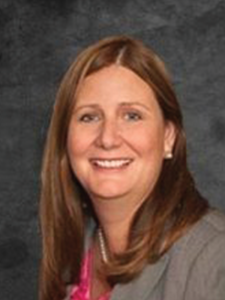
By Deb Verni
The perfect time to put together an estate plan is before you need it. Unfortunately, most people think about creating an estate plan when a close friend or relative must be placed in a nursing home or when a family member dies and the kids are fighting over assets because there is no Will.
I joke with people and say if you don’t have a “Will”, you have a “Won’t”, I won’t die or become ill and go into a nursing home. My kids won’t fight over my money. My minor children won’t be raised by my evil sister. My children won’t blow their inheritance on fast cars and gambling. My daughter’s husband won’t take half of my hard-earned money when they get divorced after I pass.
A Last Will and Testament is just the beginning of an estate plan. Although a Will is important, it is only one of the documents in your estate plan. A comprehensive estate plan should include a Will, a Health Care Proxy Living Will, a Durable Power of Attorney and in most cases a Trust. Does everyone need all these documents? It depends on your assets and your family dynamics.
For those of you that never considered family dynamics, I can assure you that if your children do not get along while you are alive, they will not get along after you pass. If you are concerned about your money going to in-laws and out-laws after your death, then you need to plan for that. If you want to make sure money goes to your grandchildren, or you have a child or grandchild with special needs, you need to plan for that too.
Now that your head is spinning and you are thinking a “won’t” is not such a bad idea and you are looking around every corner for greedy relatives, remember, you can establish an estate plan now and leave all your worries behind, literally. So how do you go about setting up an estate plan? First you need to figure out who will be in charge and where you want things to go. Estate documents are easy to establish but you need to do your homework. Let’s go through an estate plan step by step.
The Will- Details where you want your assets to go after you pass away. Note, a Will only controls assets individually owned by you when you pass away. If all your accounts are joint or have named beneficiaries, the assets will go to the named beneficiaries not the beneficiaries listed in the Will. Unfortunately, “The Probate of a Will”, takes time and money and slows up the distribution of your assets. If you are concerned about “Probate” you should establish a Trust.
The Trust-For lack of a better term is “a box” that you place your assets in to avoid probate and if it is an Irrevocable Trust, protect assets from creditors AKA “The Nursing Home”. You can fund your trust with your Real Estate, Brokerage Accounts, Certificates of Deposit, etc. When the “Grantor” (owner) passes away the Trustee distributes the assets held in the box to the beneficiaries named in the Trust. You can put specific language in the Trust to make sure that your children do not blow their inheritance, that your grandchildren and those with special needs are taken care of and that your money does not go to in-laws and out-laws. Trusts are a wonderful vehicle to make sure your assets are protected, and your wishes are followed.
The Health Care Proxy/Living Will- When preparing a Health Care Proxy, you choose the person that will make your health care decisions if you cannot make them for yourself. The Living Will expresses your wishes for the end of life. For example, if the doctor says you are going to die in a relatively short time from the underlying condition do you want to be put on a feeding tube or a ventilator or receive other treatments that will prolong your life?
The Durable Power of Attorney-Last but not least the Power of Attorney is probably the most important document you can have. Why do you ask? If you do not have a valid Power of Attorney and you become incapacitated your family will not have access to your accounts to pay your bills. They will not be able to preserve your assets if you are placed in a Nursing Home.
In conclusion, the best time to think about Estate Planning is now. You are as young as you ever will be, and we are all “aging in place”. You need to establish your estate plan when you have time to make educated decisions about who you want to make your financial and health care decisions while you are alive and who you want to oversee the distribution of your assets when you pass away and to whom you want them to go to. Remember, it is never too late to plan until it is.
